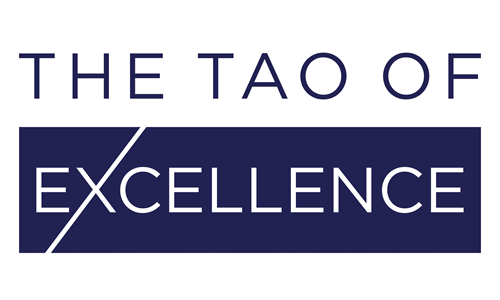Funding and reimbursement systems pay for medical devices. However, accessing these systems effectively and efficiently is often far from clear to manufacturers.
Healthcare systems additionally rely on being able to access the appropriate technology for treatments so that they can drive sustainability and a more effective and patient-centred healthcare system. It is this value-driven innovation that is vital to the future of healthcare systems in Europe and their capability to treat an aging population.
The eligibility of a product for F&R relies on a manufacturer’s clear understanding of the mechanism in place. Medtech companies need to understand the specific system for payment and reimbursement, the requirements, the local policy and what the public health authority, patients and citizens are willing to pay for.
In Europe, each Member State has its own F&R system that complies to its own political and administrative structure. In some countries F&R decisions are made at a national level, whilst others will be made by regional authorities. These inconsistencies across countries and borders can create inefficiencies that slow down access and the adoption of new and effective technologies and additionally create inequality in access to care.
To support and drive better knowledge in F&R for manufacturers and healthcare professionals alike, Medtech Europe identified six key principles in a position paper on the efficient and sustainable F&R of medical technologies, proposing:
- Transparency of funding and reimbursement policies
More transparency of the development, legal and administrative framework of national F&R policies will provide greater clarity that will enable Medtech companies to approach and interact with the relevant authorities from the start.
- Predictability and consistency in decision-making processes
F&R systems for medtech should have well-defined pathways and timelines governed by clear principles so that the outcomes are more predictable and to ensure timely and equal access to appropriate medtech for patients.
- Stakeholders’ involvement in funding and reimbursement processes
Stakeholders have unique insights and valuable expertise that should be consulted in the F&R process. All parties should be engaged in a constructive dialogue and collaborate to make this a more efficient and informed decision-making process, producing better patient outcomes.
- Enabling patient access to care
Delivering universal health coverage is a global health priority. F&R systems should be built as drivers for equality, access to care and the rights of patients.
- Supporting and rewarding innovation
The European Commission (EC) sees value-driven innovation as one of the most important instruments for improving patient outcomes and ensuring the future of a sustainable healthcare system. F&R policy needs to encourage the development of innovative technologies that provide valuable benefits to patients, physicians, payers and the overall healthcare system.
- Creating seamless care
Currently, F&R systems focus on care in hospitals and do not take into account the importance of continuity of care across settings and sectors, such as from the hospital to the community or home, or from healthcare to social care. This effectively inhibits patient recovery and incentivises medtech companies to only develop technologies for hospitals (the highest cost care setting) rather than for the community (the lowest cost care setting). Silo budgeting creates barriers to better patient outcomes and a lower total cost for care that should be removed.[1]
EC policy and F&R
Reforming the F&R system is on the EC’s agenda. If you happen to be in Brussels next week, the EC’s Directorates-General of Research and Innovation (RTD) and Communications Networks, Content and Technology (CNECT) will run a workshop on Cross-border Innovation Procurement in Health: EU Funding Opportunities & Best Practices. This event will take place on 17 October, 10–5pm, and will aim to discuss solutions with stakeholders to address challenges such as “funding, fragmented legal framework, lack of common standards or interoperability” across the EU. It will also present the new Pre-Commercial Procurement (PCP) and Public Procurement of Innovative solutions (PPI) for 2020.
Whilst it is important for stakeholders to stay up to date with the latest F&R information and be a part of the conversation around policy and designing solutions, there are internal actions that manufacturers can begin to take to improve their F&R process.
An interdisciplinary approach
It is clear that more efficient processes and predictably better patient outcomes mean less time and resources wasted for both manufacturers and the healthcare system. For this, manufacturers need to focus on getting more out of the regulatory process, which is costly in both time and resources.
The higher standards for clinical data under the MDR present such an opportunity. Greater access to the clinical data and real-world evidence (RWE) for a medical device will improve the health technology assessment (HTA) that ultimately decides F&R.
Clinical and RWE data collection can result in actionable insights that can be easily accessed and demonstrate a device’s performance and eligibility for F&R. The key to this—and echoing Medtech Europe’s third principle of the importance of stakeholder involvement—is utilising the framework of the regulatory process to draw information and data from every sector of a products development through to its application.
When we integrate the process of F&R from the earliest stages of a product’s development through to its use in the healthcare system we create the opportunity for multiple viewpoints to collaborate and demonstrate a device’s performance, strengthen its HTA and secure its eligibility for F&R.
How we can help
From inception to application, a medtech product is continuously creating valuable data that can be channelled into the F&R system. The Tao of Excellence has the regulatory experience and expertise to utilise the compliance systems already in place and integrate F&R requirements. We also have a team of data scientists, developers and analysts that can ensure you get the most out of your clinical data, the regulatory process and your device designs. Contact us today to learn more about our services.
 Jasminka Roth
Jasminka Roth
Founder and Director of The Tao of Excellence
Phone
+41 52 685 51 65
Email
meetus@taoexcellence.ch
Did you like this article? Follow us on LinkedIn and Twitter!
[1] Medtech Europe, Six Key Principles for the Efficient and Sustainable Funding & Reimbursement of Medical Technologies, 25 July 2017, p. 1–8

